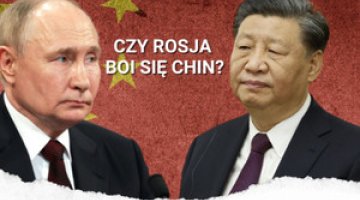Consent to establishing the Special Tribunal for the Crime of Aggression against Ukraine
On 9 May in Lviv, the foreign ministers of the so-called Core Group – a coalition of around 40 states working towards the establishment of a Special Tribunal for the Crime of Aggression against Ukraine – issued a resolution announcing the completion of technical preparations for establishing a special international court to prosecute those responsible for the Russian invasion. The Tribunal is to be established under the institutional framework of the Council of Europe (CoE) and in coordination with it. On 19 March, the CoE agreed on three key documents: an agreement between the Council and Ukraine on the creation of the Tribunal, its statute, and an administrative agreement governing the institution’s management. These documents are expected to be approved by both Kyiv and the CoE by the end of the month, and subsequently ratified by both parties, along with other states interested in supporting the Tribunal’s activities. According to the current plans, the court, which will be headquartered in The Hague, is expected to begin its first proceedings in 2026.
The Tribunal will not be merely a Ukrainian court involving foreign judges and prosecutors. Instead, it will be an international court with a mandate to prosecute individuals responsible for the crime of aggression against Ukraine. The approved documents do not specify whether the aggression is considered to have begun in 2014 or 2022. The Prosecutor General of Ukraine will be responsible for submitting motions to bring specific officials or military personnel before the Tribunal.
Functional immunities, which protect state officials in respect of acts committed while in office (and continue to apply after they leave the post), will not apply before the Tribunal. However, personal immunities granted to the so-called troika – the head of state, head of government and minister of foreign affairs – will be respected. These cover acts committed both privately and in an official capacity, but expire once the individual leaves office. The statute does, however, permit the initiation of preliminary proceedings (i.e. the collection of evidence) in respect of such individuals. Once their immunities lapse, international prosecutors will be able to bring indictments before the Tribunal. Kyiv aims to hold approximately 20 individuals accountable, not only from the Russian leadership but also from the Belarusian and North Korean authorities. The court will have the power to try individuals in absentia.
The establishment of the Tribunal marks the first instance in history of a court being created to investigate the crime of aggression while that aggression is still ongoing. The proposed functioning of the institution largely meets Kyiv’s demands, including its international status and the possibility of conducting trials in absentia. However, due to the Tribunal’s lack of affiliation with the United Nations, it will not be able to override the personal immunity of Vladimir Putin. This means that he cannot be tried as long as he formally remains president of Russia.
Commentary
- The completion of preparations to establish the Tribunal while the war is ongoing should be regarded as a success for Ukraine. Such courts are typically set up only after a conflict has ended. The Tribunal’s proceedings will enable Russia’s leadership to be portrayed as criminals and aggressors, and will provide legal confirmation of the commission of the crime of aggression. This will strengthen Kyiv’s case for reparations for the damage caused by Russia and reinforce its narrative portraying the invasion as criminal in nature. For Ukraine, it is also important to send a clear signal that such crimes will inevitably be punished.
- Most of the adopted provisions concerning the court’s operation align with Ukraine’s expectations. It will be an international body acting on behalf of the broader international community, rather than a Ukrainian court with international judges. The documents do not specify the starting point of the aggression, thereby potentially allowing for the prosecution of those responsible for the aggression against Crimea and Donbas in 2014. Since it seems unlikely that any of the accused will appear in person at The Hague the provisions allowing for the conviction of individuals in absentia must also be considered a success. This ensures that the Tribunal’s effectiveness will not be merely symbolic.
- The United Nations has not been involved in establishing the Tribunal, which has undermined its legitimacy to override Vladimir Putin’s international immunity. It is a standard principle of customary international law to afford this privilege to heads of state (see ‘Putting Russia on trial. Ukrainian efforts to establish a tribunal for crimes of aggression’). An exception to this rule is envisaged in the statute of the International Criminal Court. However, for formal reasons, the ICC cannot prosecute the crime of aggression committed by Russia against Ukraine – one of the main reasons Kyiv called for the creation of a new body. In the past, immunities have been lifted by international courts established with UN participation. This is why Ukraine initially sought to create the Tribunal under the auspices of the UN. Its formation in cooperation with the Council of Europe (and G7 members), by contrast, undermines its authority and prevents it from relying on existing precedents. Furthermore, the initiative risks being viewed as yet another instrument of Western confrontation with the rest of the world, particularly as states from the Global South have declined to participate in its creation. For these reasons – and also under pressure from the United States – it was decided that the Tribunal would not infringe upon the personal immunity of the so-called troika. Nonetheless, it is still favourable that prosecutors have been granted the right to gather evidence in preparation for future proceedings.





